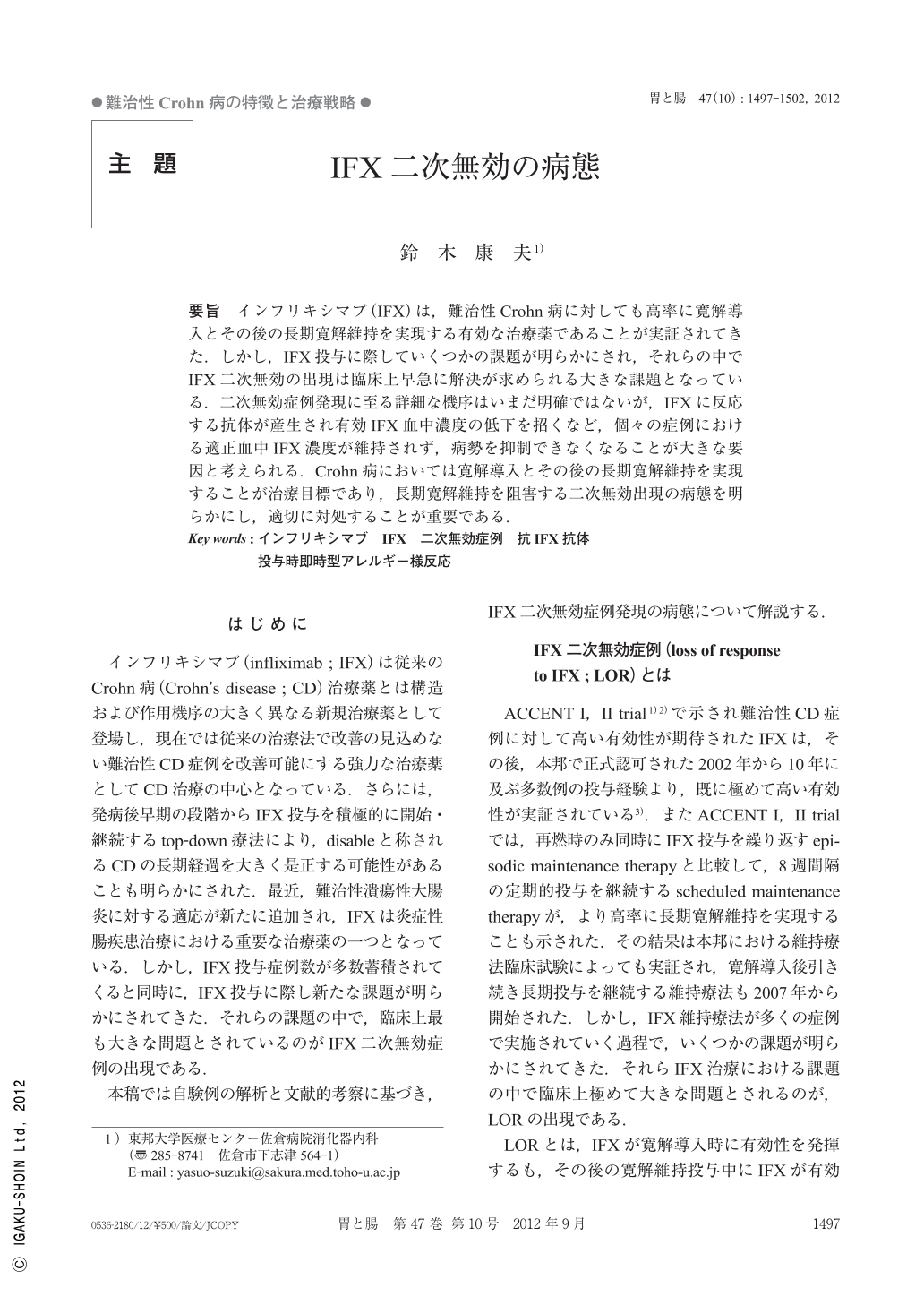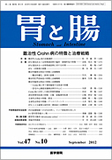Japanese
English
- 有料閲覧
- Abstract 文献概要
- 1ページ目 Look Inside
- 参考文献 Reference
要旨 インフリキシマブ(IFX)は,難治性Crohn病に対しても高率に寛解導入とその後の長期寛解維持を実現する有効な治療薬であることが実証されてきた.しかし,IFX投与に際していくつかの課題が明らかにされ,それらの中でIFX二次無効の出現は臨床上早急に解決が求められる大きな課題となっている.二次無効症例発現に至る詳細な機序はいまだ明確ではないが,IFXに反応する抗体が産生され有効IFX血中濃度の低下を招くなど,個々の症例における適正血中IFX濃度が維持されず,病勢を抑制できなくなることが大きな要因と考えられる.Crohn病においては寛解導入とその後の長期寛解維持を実現することが治療目標であり,長期寛解維持を阻害する二次無効出現の病態を明らかにし,適切に対処することが重要である.
IFX(infliximab)has been demonstrated to be highly effective in both inducing remission and keeping long-term remission for patients with refractory CD(Crohn's disease). But there have been problems during IFX therapy. LOR(loss of response to IFX)is clinically, a most important problem that must be resolved as soon as possible. However, detailed mechanisms of LOR are still unclear. One of the main problems of LOR is that each patient with LOR cannot keep enough blood trough concentration of IFX because ATI(antibody to IFX)inhibiting the effect of IFX is produced. The goal of CD treatment is both to induce remission rapidly and to keep remission as long as possible, so we have to clarify the mechanism of LOR and treat patients with LOR in a more correct manner.

Copyright © 2012, Igaku-Shoin Ltd. All rights reserved.


